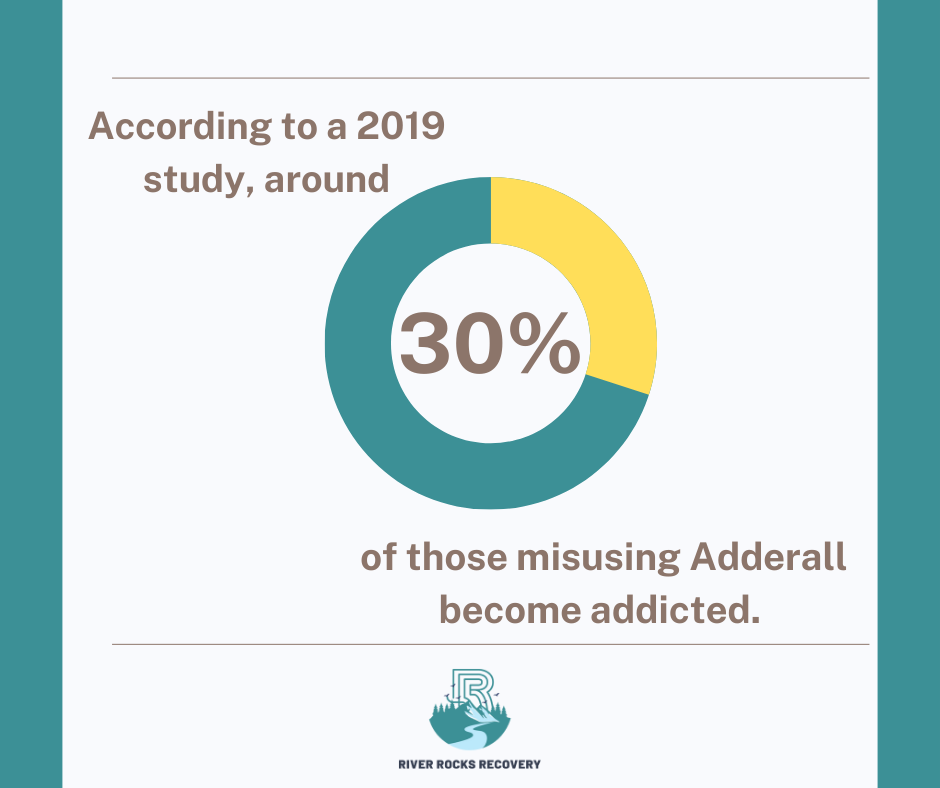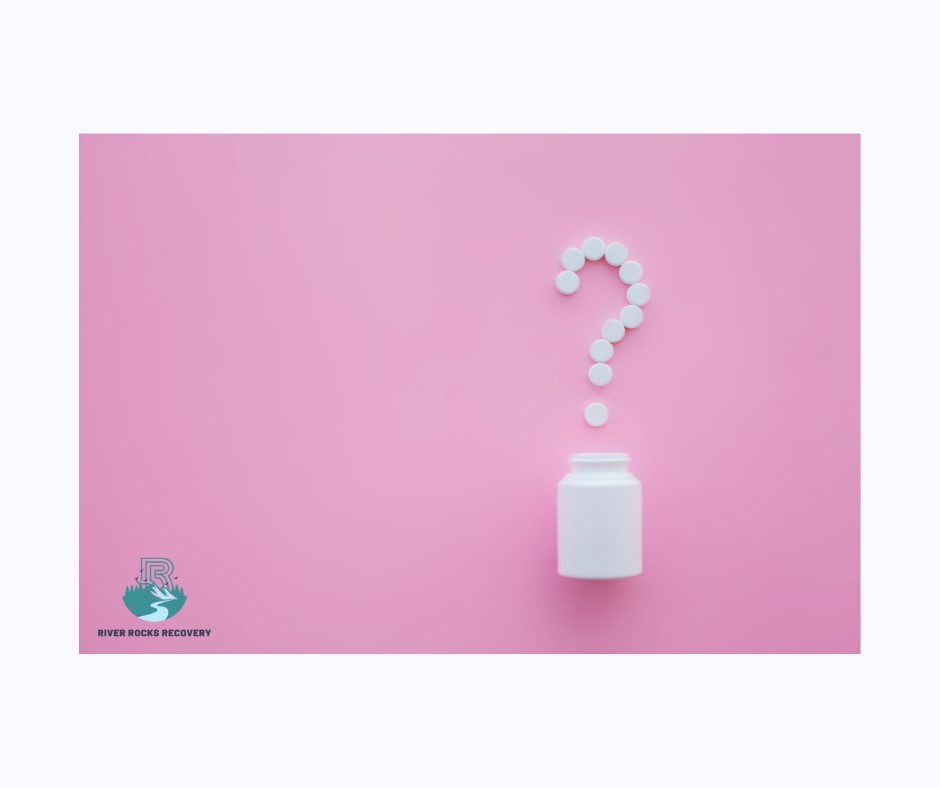You might be an adolescent or young adult who has been prescribed Adderall to treat attention deficit hyperactivity disorder (ADHD). And while this medication can provide benefits like increased focus and productivity, it also carries risks. Adderall is classified as a Schedule II controlled substance by the U.S. Drug Enforcement Administration due to its high potential for abuse and addiction. In fact, an estimated 16 million Adderall prescriptions are written annually in America. If you are concerned about addiction, know that recovery is possible. River Rocks Recovery in Middletown, Ohio provides comprehensive treatment programs like partial hospitalization, intensive outpatient, and standard outpatient services. Their team of addiction counselors can guide you through therapy and healthy coping strategies to overcome stimulant dependence. Call (888) 905-6281 or connect with us online to find support in our programs today. With our help, you can manage ADHD symptoms without sacrificing your well-being.
What Is Adderall?
Adderall is a prescription stimulant medication used to treat attention deficit hyperactivity disorder (ADHD) and narcolepsy. As one of the most widely prescribed ADHD medications in the U.S., over 16 million Adderall prescriptions were dispensed in 2012 alone.
Medication Overview
Adderall contains a combination of amphetamine and dextroamphetamine salts that work by increasing the levels of certain brain chemicals. This can help improve focus, concentration, and impulse control for those diagnosed with ADHD.
However, when misused by those without an ADHD diagnosis, Adderall can produce a euphoric “high” and increase energy levels, making it a prime target for abuse and addiction.
Dangers of Misuse
Adderall misuse carries serious health risks, including:
- Increased heart rate and blood pressure
- Cardiovascular problems
- Psychosis or paranoia
- Addiction and withdrawal symptoms
The Intended Uses and Benefits of Adderall
Prescribed for ADHD
Adderall is commonly prescribed to treat attention deficit hyperactivity disorder (ADHD) in children and adults. Its stimulant effects help improve focus, concentration, and impulse control for those struggling with ADHD symptoms.
Increased Productivity
When taken as directed, Adderall can provide a cognitive boost that enhances motivation, mental stamina, and task persistence. This makes it helpful for students facing academic demands or professionals juggling multiple responsibilities.
Controls Narcolepsy
Adderall’s ability to promote wakefulness also makes it an effective treatment for narcolepsy. By stimulating the central nervous system, it helps narcolepsy patients stay alert and avoid sudden sleep attacks during the day.

The Dangers and Risks of Using Adderall
Potential for Abuse & Addiction
Adderall, a prescription stimulant, carries a high risk of dependence and addiction. Its effects on the brain’s reward system can lead to compulsive use and difficulty quitting. According to a 2019 study, around 30% of those misusing Adderall become addicted.
Adverse Effects
Misusing Adderall can have dangerous side effects like irregular heartbeat, dangerously high body temperature, cardiovascular problems, and psychosis. Long-term effects may include malnutrition, anxiety, and sleep deprivation.
Overdose Risks
Adderall overdose is life-threatening and requires immediate medical attention. Symptoms include vomiting, agitation, hallucinations, seizures, and coma. In 2017, over 15,000 ER visits involved an Adderall overdose.
Adderall Addiction Is Real
Psychological Dependence
Adderall, a combination of amphetamine and dextroamphetamine, is highly addictive. With regular use, your brain becomes reliant on the drug to function normally, leading to psychological dependence.
Physical Side Effects
Prolonged Adderall abuse and addiction can cause serious physical side effects like irregular heartbeat, high blood pressure, insomnia, and psychosis. Breaking free from this vicious cycle requires professional help.
Overcoming an Adderall Addiction
Beating an Adderall addiction requires professional treatment and evidence-based programs help overcome dependence through:
Medically-Assisted Detox
The first step is ridding your body of Adderall through a supervised medical detox. This manages withdrawal symptoms for a safer recovery.
Therapy & Counseling
Individual and group therapy sessions explore the root causes fueling addiction. Cognitive behavioral therapy provides healthy coping mechanisms.
Holistic Healing
Nutritional counseling, exercise, mindfulness and more promote overall wellness. A well-rounded approach sets the foundation for sobriety. Our intensive outpatient (IOP) and partial hospitalization (PHP) programs provide structured treatment tailored to your needs. With compassionate care and proven strategies, you can break free from Adderall’s grip.
Conclusion
You now have a more complete understanding of the upsides and downsides of Adderall use. While it can boost focus and concentration when used properly, its addictive nature can quickly lead to abuse and dependence. The caring team at River Rocks Recovery offers comprehensive treatment programs to help people recover from Adderall addiction. Their partial hospitalization program, intensive outpatient services, counseling and group therapy empower people to break free of this stimulant. Call River Rocks at (888) 905-6281 or connect with them online to take the first step today. Their dedicated staff will help you or your loved one start a new chapter focused on health and happiness.
River Rocks Recovery PHP, IOP, and Outpatient Programs
Comprehensive Addiction Treatment
At River Rocks Recovery, we understand the complexities of addiction. Our evidence-based programs are designed to provide comprehensive care tailored to your unique needs. Whether you require the intensive support of our Partial Hospitalization Program (PHP) or the flexibility of our outpatient Program, we’re here to guide you every step of the way.
Partial Hospitalization Program (PHP)
Our PHP offers a structured, intensive level of care for individuals struggling with substance abuse or co-occurring mental health disorders. This program provides a safe, supportive environment for recovery, with daily group therapy, individual counseling, and medical monitoring as needed.
Intensive Outpatient Program (IOP)
For those who require a less intensive level of care, our intensive outpatient services (IOP) offers a step-down approach to treatment. This program allows you to continue your recovery journey while maintaining work, school, or family obligations. IOP includes group therapy, individual counseling, and relapse prevention strategies.
Outpatient Program
Our outpatient Program is designed for individuals who have completed a higher level of care or those seeking support in maintaining their recovery. This program offers individual and group counseling sessions, providing ongoing support and accountability as you navigate life in recovery.




























